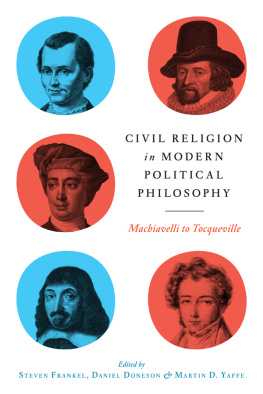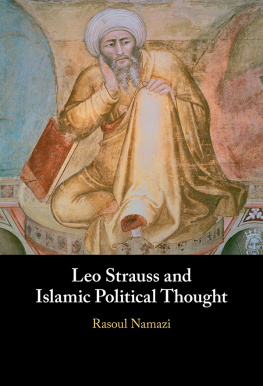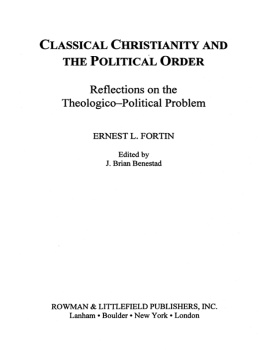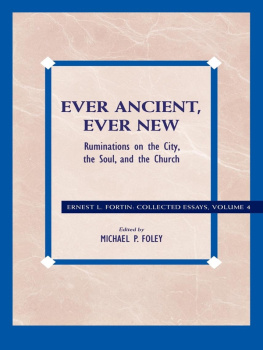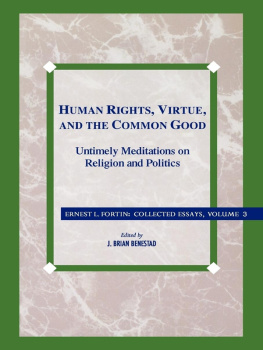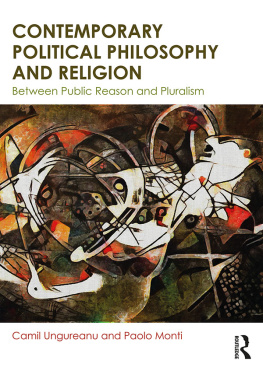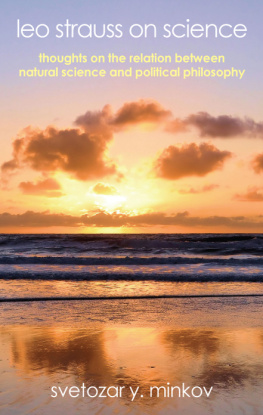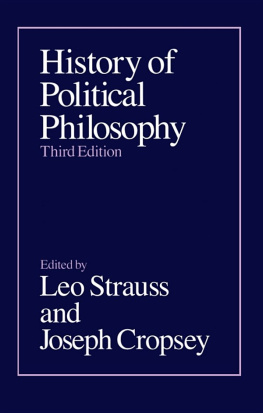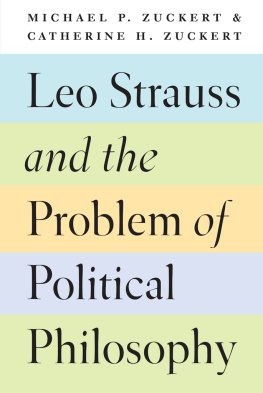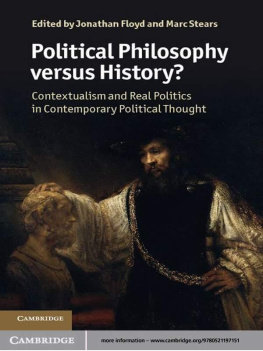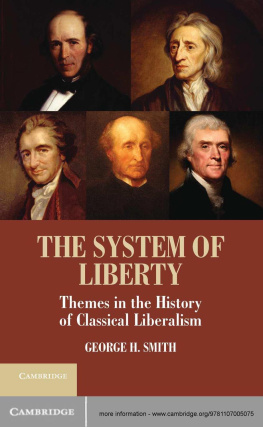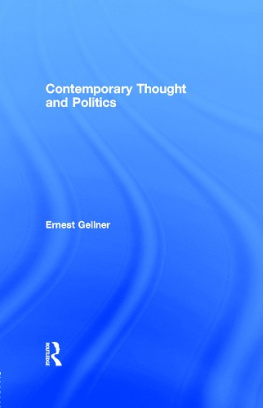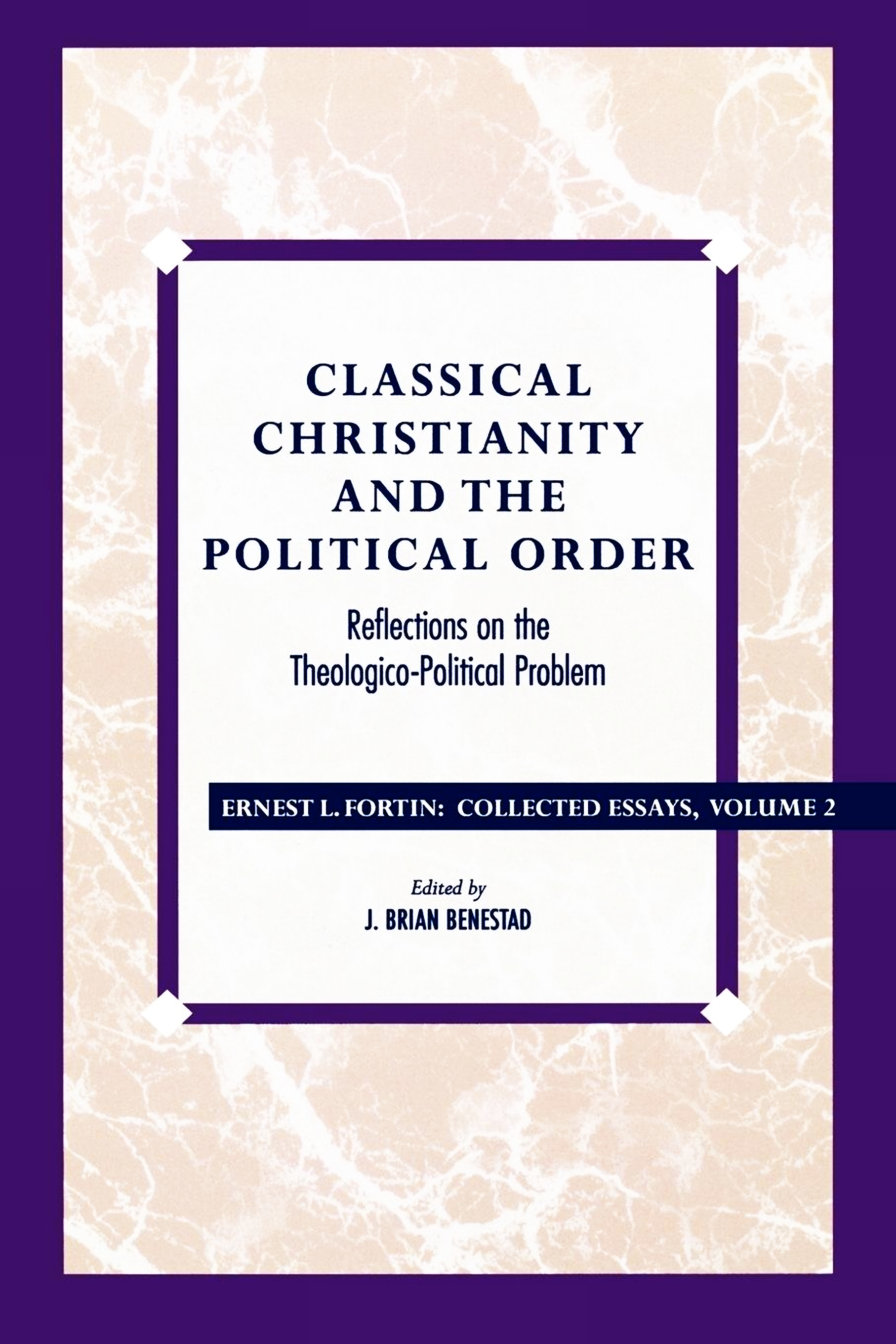ACKNOWLEDGMENTS
The author and editor wish to take this opportunity to thank all those who had a direct hand in the launching and the realization of this project, among them: Stephen F. Brown, Matthew Lamb, and Patrick J. C. Powers. Daniel J. Mahoney found the right publisher and graciously contributed the Foreword to the second volume. The idea of publishing the three volumes simultaneously and as a set belongs to Jonathan Sisk, the editor-in-chief of Rowman and Littlefield, without whose encouragement and active support the project would probably never have seen the light of day.
Invaluable assistance was provided by the editorial staff of Rowman and Littlefield and, in particular, by Julie Kirsch and Dorothy Bradley, whose expertise and endless patience won both our gratitude and our admiration. We are also grateful to Phillip Wodzinski, a doctoral student in political science at Boston College, whose research talents and proofreading skills, hitherto unknown to the world, revealed themselves to superb advantage on this occasion. Ann King, the retired secretary of the Department of Theology and Religious Studies at the University of Scranton, toiled endlessly and in a completely selfless way on virtually every page of the manuscript, at the risk of being driven out of her mind by its innumerable references to works in at least six different foreign languages, including Greek and Latin. Her dedication was paralleled by that of Shirley Gee, the omnicompetent administrative assistant of the Institute of Medieval Philosophy and Theology at Boston College. Further secretarial help was provided by Marie Gaughan, Patricia Mecadon, and Barbara Quinn, of the University of Scranton. The staff of the Thomas ONeill Library, Boston College was always there to help whenever necessary and also deserves special mention. The author is immensely grateful for generous fmancial help in the form of research fellowships received from the John M. Olin Foundation, the Lynde and Harry Bradley Foundation, the National Endowment for the Humanities, and the Boston College Graduate School.
None of the articles in these three volumes could have been written without constant input from the authors colleagues and daily conversation partners in the departments of Theology, Political Science, and Philosophy at Boston College, along with friends and long-time associates in other colleges and universities here and abroad. They shall not be listed individually for fear that too many names should inadvertently be left out. If they are ever tempted to peruse these books, they will have no trouble identifying their respective contributions.
The editor is especially indebted to his colleagues at the University of Scranton, Father Richard Rousseau, S.J., and Dr. Edward Mathews, as well as to Betsy Moylan, a librarian at the University, for their expert assistance. He thanks his wife, Janet Benestad, and their daughters Katherine and Lizzie, for help with various aspects of the project. He also expresses his appreciation to the University of Scranton for grants to support the writing of his foreword and the typing of numerous articles, and to Dr. Thomas Hogan and Dr. Richard Passon for their support of the whole endeavor.
Chapter 1. The Political Thought of St. Augustine is reprinted from History of Political Philosophy , 3rd edition, edited by L. Strauss and J. Cropsey, 1987 University of Chicago Press, 176-205. By permission of the University of Chicago Press.
Chapter 2. Political Idealism and Christianity in the Thought of St. Augustine is reprinted from a book by the same title published by Villanova Press 1972. By permission of Villanova University Press.
Chapter 3. The Political Implications of St. Augustines Theory of Conscience is reprinted from Augustinian Studies 1 (1970): 133-52. By permission of Augustinian Studies.
Chapter 4. Augustine and Roman Civil Religion: Some Critical Reflections is reprinted from Revue des Etudes Augustiniennes 26 (1980): 238-56. By permission of Revue des Etudes Augustiniennes .
Chapter 5. Augustine, Spinoza, and the Hermeneutical Problem. Previously unpublished.
Chapter 6. Augustines City of God and the Modern Historical Consciousness is reprinted from The Review of Politics 41 (1979): 739-46. By permission of The Review of Politics.
Chapter 7. Augustine and the Problem of Modernity. Previously unpublished.
Chapter 8. The Political Thought of Thomas Aquinas is reprinted from History of Political Philosophy, 3rd edition, edited by L. Strauss and J. Cropsey, 1987 University of Chicago Press, 248-75. By permission of the University of Chicago Press.
Chapter 9. Politics and Philosophy in the Middle Ages: The Aristotelian Revolution is reprinted from Aquinass Commentary on the Politics of Aristotle, introduction, notes and translation by Ernest Fortin, The Catholic University of Americal Press (forthcoming). By permission of The Catholic University of America Press.
Chapter 10. Augustine, Thomas Aquinas, and the Problem of Natural Law is reprinted from Mediaevalia 4 (1978): 179-208. By permission of Mediaevalia.
Chapter 11. Natural Law and Social Justice, is reprinted from The American Journal of Jurisprudence 30 (1985): 1-20. By permission of The American Journal of Jurisprudence.
Chapter 12. On the Presumed Medieval Origin of Individual Rights is reprinted from Final Causality in Nature and Human Affairs , edited by Richard Hassing, The Catholic University of America Press (forthcoming). By permission of The Catholic University of America Press.
Chapter 13. The New Rights Theory and the Natural Law is reprinted from The Review of Politics 44 (1982): 590-612. By permission of The Review of Politics.
Chapter 14. Rational Theologians and Irrational Philosophers: A Straussian Perspective is reprinted from Interpretation 12 (1984): 349-56. By permission of Interpretation.
Chapter 15. Faith and Reason in Contemporary Perspective is reprinted from Interpretation 14 (1986): 371-87. By permission of Interpretation.
Chapter 16. Between the Lines: Was Leo Strauss a Secret Enemy of Morality? is reprinted from Crisis 7, no. 11 (December, 1989): 19-26. By permission of Crisis.
Chapter 17. Straussian Reflections on the Strauss-Voegelin Correspondence is reprinted from The Review of Politics 56 (1994): 337-345. By permission of The Review of Politics.
Chapter 18. Nietzsche and the Crisis of Nihilism is reprinted from Meaning, Truth and God, edited by Leroy S. Rouner, 0 1982, University of Notre Dame Press. By permission of the Notre Dame Press.
IV. SELECTED REVIEWS
F. Wilhelmsen, Christianity and Political Philosophy is reprinted from The Review of Politics 41 (1979): 578-582. By permission of The Review of Politics.
R. Hittinger, A Critique of the New Natural Law Theory is reprinted from the Review of Metaphysics 42 (1989): 838-41. By permission of Review of Metaphysics.
F. Rousseau, La Croissance solidaire des droits de lhomme is reprinted from the Review of Metaphysics 38 (1984): 693-96. By permission of Review of Metaphysics.
G. Fessard, Chrtiens marxistes et thologie de la libration and Eglise de France, prends garde de perdre la foi is reprinted from Review of Metaphysics 34 (1981): 128-31. By permission of Review of Metaphysics.
D. Vree, On Synthesizing Marxism and Christianity is reprinted from Review of Metaphysics 33 (1980): 807-09. By permission of Review of Metaphysics.
H. A. Deane, The Political and Social Ideas of St. Augustine is reprinted from Cross Currents 14, no. 4 (1964): 482-84. By permission of Cross Currents.


